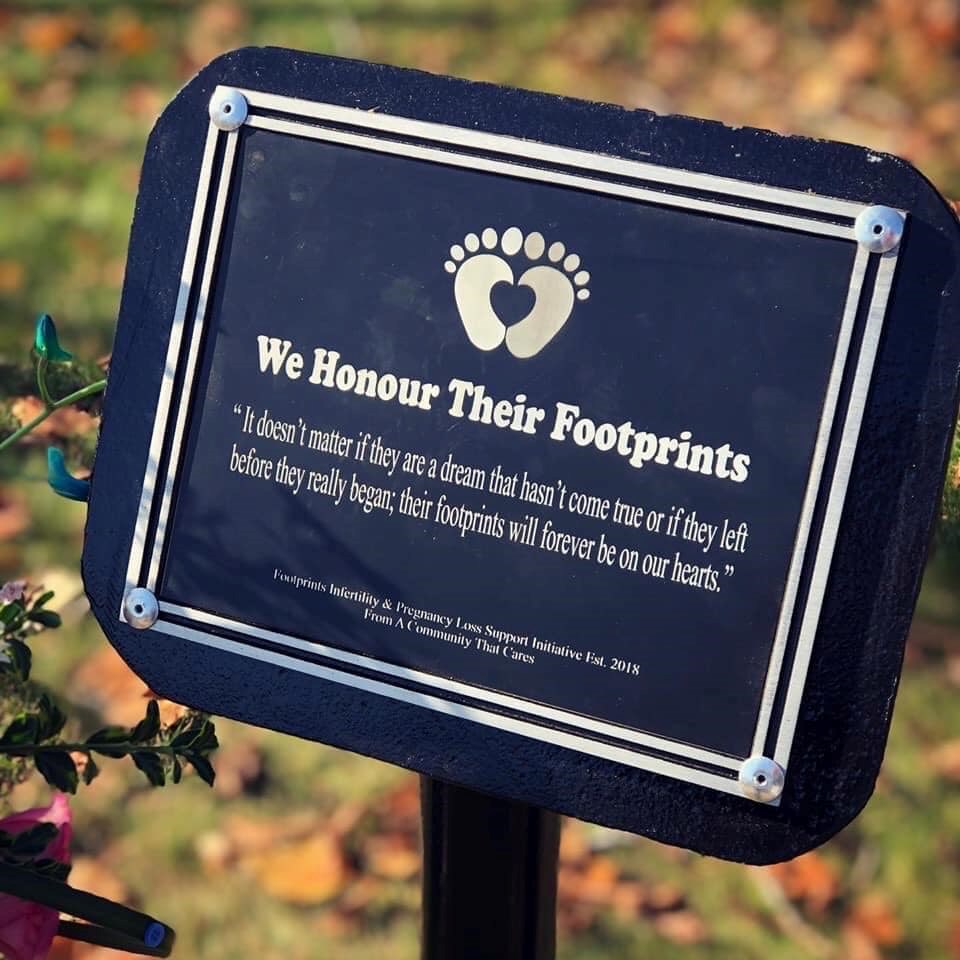LAKELAND – While National Infertility Week has come and gone, the realities of infertility and pregnancy loss continue for thousands of Canadian women and couples every day.
Each year National Infertility Week is recognized during the last week of April.
Dialogue around these topics should also continue beyond the one week set aside each year to raise awareness of infertility, says Blaise Hunter, a certified reproductive health rights advocate and founder of the Footprints initiative.
“It's great to have a week to raise awareness, to educate, as well as normalize this conversation but it shouldn't just be for a week. We should have an ongoing conversation and dialogue about education and awareness of fertility and redefining what infertility means,” Hunter told Lakeland This Week from Nanaimo, B.C.
Hunter began her journey as a reproductive health advocate in 2018 after experiencing her third miscarriage while living in Bonnyville. Her experiences with pregnancy loss led her down a new path of infertility advocacy – a topic not often discussed openly.
“It is a common issue, but no one feels really comfortable to share because it's a very private matter,” said Hunter. “Often mothers feel guilty, ashamed, responsible for losses or infertility since fertility is very much connected to being a woman. We feel like we're not doing enough or we're not good enough.”
The ongoing narrative in society that miscarriages or infertility is an individual's fault is one of many social norms that need to change, according to Hunter.
Hunter and her husband’s own pain, grief and loss are what catapulted her to her mission to break the stigma on infertility and pregnancy loss both in health care and in the workplace.
In 2018, Hunter started Footprints with the support of her obstetrician and other Bonnyville doctors.
The Hunter family learned first-hand the lack of support available to parents grieving an “angel baby” or infertility, especially in rural Alberta. So, Hunter and her husband started a peer support group for others experiencing infertility and pregnancy loss at the Dragonfly Centre, which eventually transitioned online due to the pandemic.
A standing memorial was also erected along Lakeshore Drive in Bonnyville for parents to honour the memory or the dreams of their babies.
At the time, the community rallied behind the initiative and raised over $5,700 to create support bags for those who experienced pregnancy loss or infertility. These bags are still available free of charge at the Bonnyville Medical Centre, the Cold Lake Primary Care Network, and now in Nanaimo or by request at www.blaisehunter.com/footprints.
Included in the support bag is a book written by Hunter entitled Heroine: Embrace Your Flaws and Own Your Awesome. The book discusses the struggles faced by Hunter as she processed her own miscarriages as well as the personal experiences of other local Bonnyville women.
More than anything, Hunter wants those experiencing infertility to know, “You're not alone. It is not your fault. It's not connected to your identity or your worth. It's just something that you can't control, and it is the same with men if they experience infertility.”
It is estimated that one in six Canadians experience infertility, according to data released by the Canadian Fertility and Andrology Society in 2022.
Additionally, one in four pregnancies will result in a miscarriage, hunter noted. “When you look at it, about 50 per cent of couples are battling some sort of infertility issue, and it's not gender exclusive.”
While Hunter says she received exceptional support from medical staff in the hospital and medical clinic, it was what happened outside the walls of the hospital that left long lasting scars.
“In Canada, the U.S. and around the world, women are given a pill sent home to deliver their dead baby and then flush it down the toilet. That is torture... the guilt that I carry is something I have to work through every single day,” Hunter told an auditorium of people in Istanbul, Turkey, while giving a keynote speech at the UN USIDHR Summit in 2022.
“Silence cannot be the marker of strength anymore. I want to break the stigma, and we can’t change what we don’t dare speak of.”
To lose a baby is one painful thing, to feel unsupported through the trauma of it is another.
That is why the mandate for Footprints is a two-part mission. “To improve systems on the front lines to ensure parents get the proper care, information and emotional support the moment their trauma happens, as well as work with governing bodies to implement proper protocol,” explained Hunter.
While the needle is moving in the right direction when it comes to conversations around infertility, more work needs to be done to normalize the conversation.
“I know the awareness week is over, but that doesn't mean we stop at that one week. It sparks the conversation that it continues the conversation, so it's normalized every day,” Hunter said.



